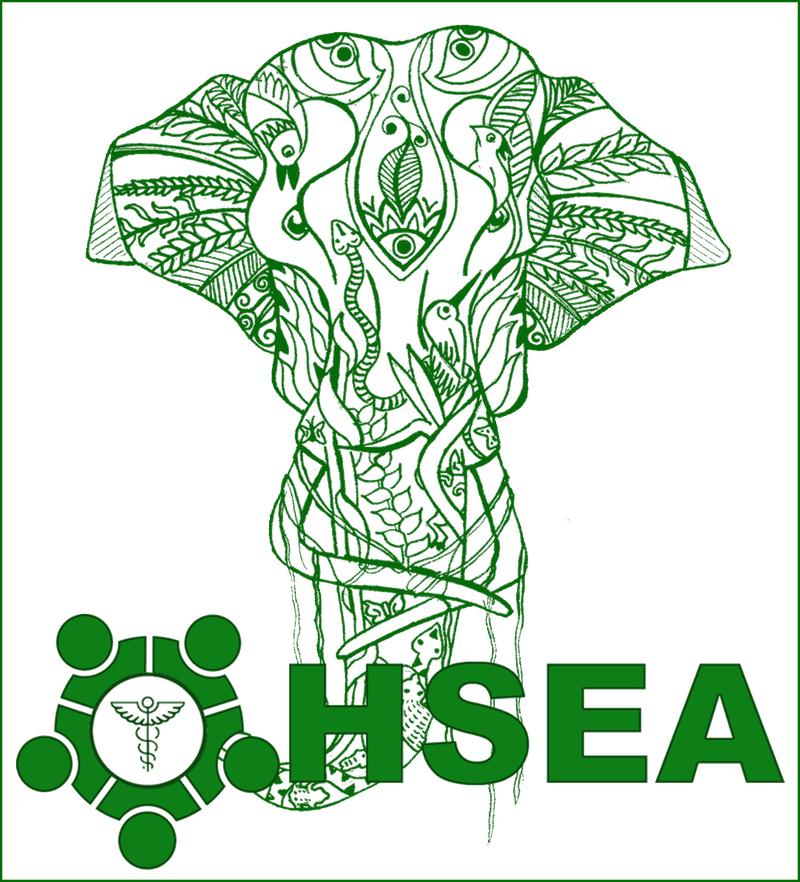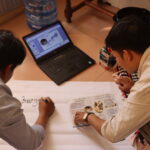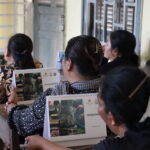Combatting zoonotic diseases through trainings delivered by Cambodian organizations
PITCH
INTRODUCTION TO THE PROJECT
In Cambodia, rural households are at higher risk of infection from zoonotic diseases, more especially in areas experiencing high scale and rate deforestation. However, despite their vulnerability, the communities are often unaware of the risks and maintain hazardous practices. When it comes to supporting isolated communities, local organizations are at the forefront providing training and raising awareness on harmful practices to farmers and families. Nevertheless, when it comes to zoonotic diseases, local CSOs directly supporting farmers are often lacking the knowledge and methodology needed to effectively spread good practices to at-risk communities.
In order to efficiently build the capacity of local actors (CSOs, authorities, public health institution, communities), a better understanding of the current knowledge and practices regarding zoonotic diseases in Cambodia is needed. In order to do so, Planète Urgence will be collaborating with the Pasteur institute that just completed a full assessment of risk- perception and behavioral components in zoonotic diseases transmission.
PROJECT IN ACTION
Goal: Reduce the vulnerability of communities at-risk of zoonotic diseases infection.
Task 1: Designing a training program for 1 partner CSO based on Pasteur Institute’s behavioral risks assessment ; Review and discussions around the assessment’s report first conclusions and their implications for local CSOs.
– Identification of the CSOs needs in terms of CB as per their interventions with at-risk communities and best approaches for training.
– Design of a training module to be provided to CRDT’s teams on farmer’s training around zoonotic diseases prevention.
Task 2: Providing training to CRDT’s teams on farmer’s training on zoonotic diseases prevention (trainer’s training)
– Providing training to a sample of the at-risk communities supported by CRDT Evaluation of the trainer’s training and trainer feedback
Task 3: Development of a Capacity Building plan for targeted CSOs and communities and sharing with OH project leaders.
– Compilation of the information and recommendations generated by tasks 1 et 2
– Identification of the CB strategy and action plan to be implemented for CSOs and at-risk communities in collaboration with zoonotic diseases experts Presentation of CB strategy and action plan to OH project leaders working on CB strategies for other sectors.
NEXT STEPS
- This project was a pilot, and the lessons learned can contribute to the design of a larger project targeting more CSOs and local communities.
There is a need to build the capacity of a wider range of stakeholders: other NGOs and CSOs focusing on issues such as wildlife conservation and public health; health workers, village chiefs, etc. (for example, local hospitals have little capacity to detect disease). It will also be useful to work with 2 or 3 technical experts (e.g. animal health/human health/wildlife conservation) to deepen the “One Health” approach and address other issues such as the protection of forests and biodiversity, and wildlife in particular.
The hunting and consumption of wild animals remains a major problem and a potential source of epidemics in Cambodia. It would be useful to address this issue in future prevention activities, as it is linked to the work carried out by conservation NGOs working with communities to find alternative livelihoods. - Furthermore, despite the close link between zoonotic disease outbreaks and biodiversity loss, the implementation of nature-based solutions as a means of promoting new income-generating activities and additional barriers to zoonotic disease outbreaks is encouraged but underdeveloped. Nor is the link between deforestation and human health a subject covered in Cambodian universities and curricula. These issues should be addressed in fut
ECCOZAP ON THE WEB
XXXX
CONTACT
Project leader :
Pauline LOVICOURT (pauline.lovicourt@planete-urgence.org)
Associated researchers :
Channy Or (or_channy@crdt.org.kh)
Anne-Laure Banuls (anne-laure.banuls@ird.fr)
Manon BONNET (manon.bonnet@planete-urgence.org)
Countries involved : Cambodia and France








